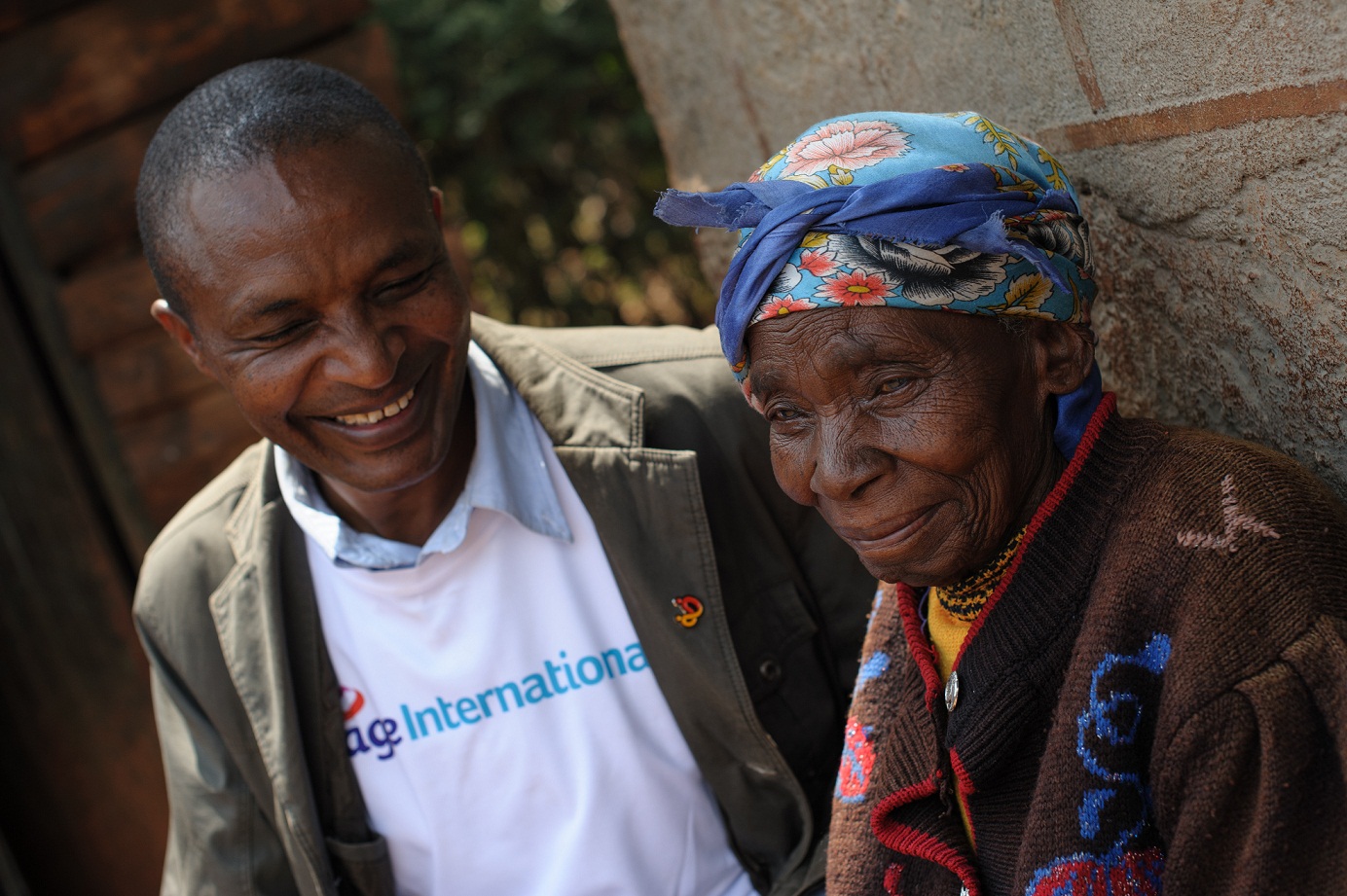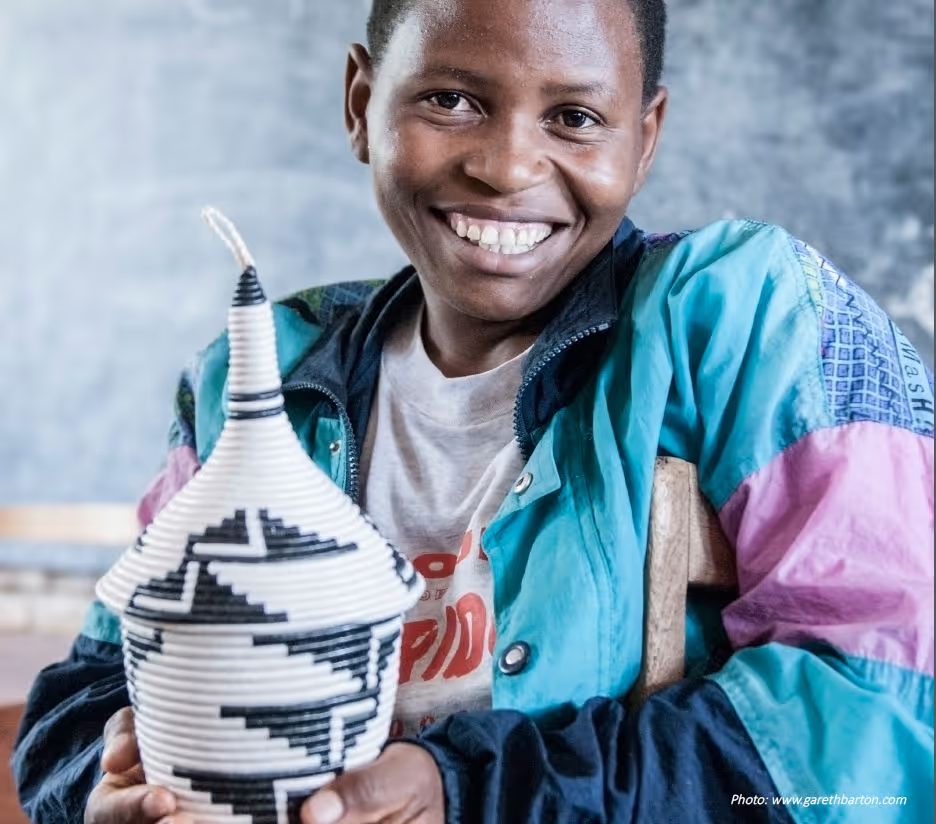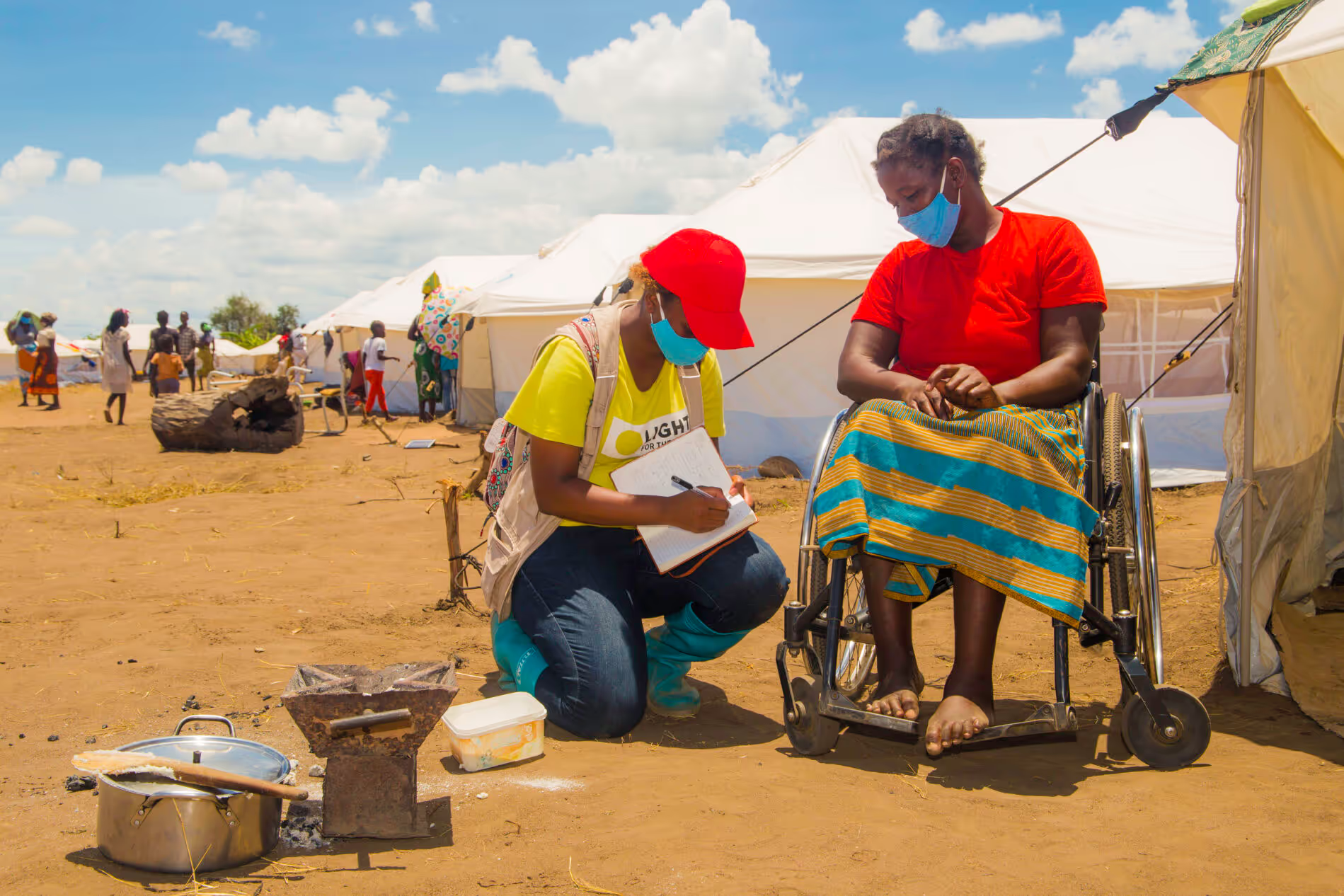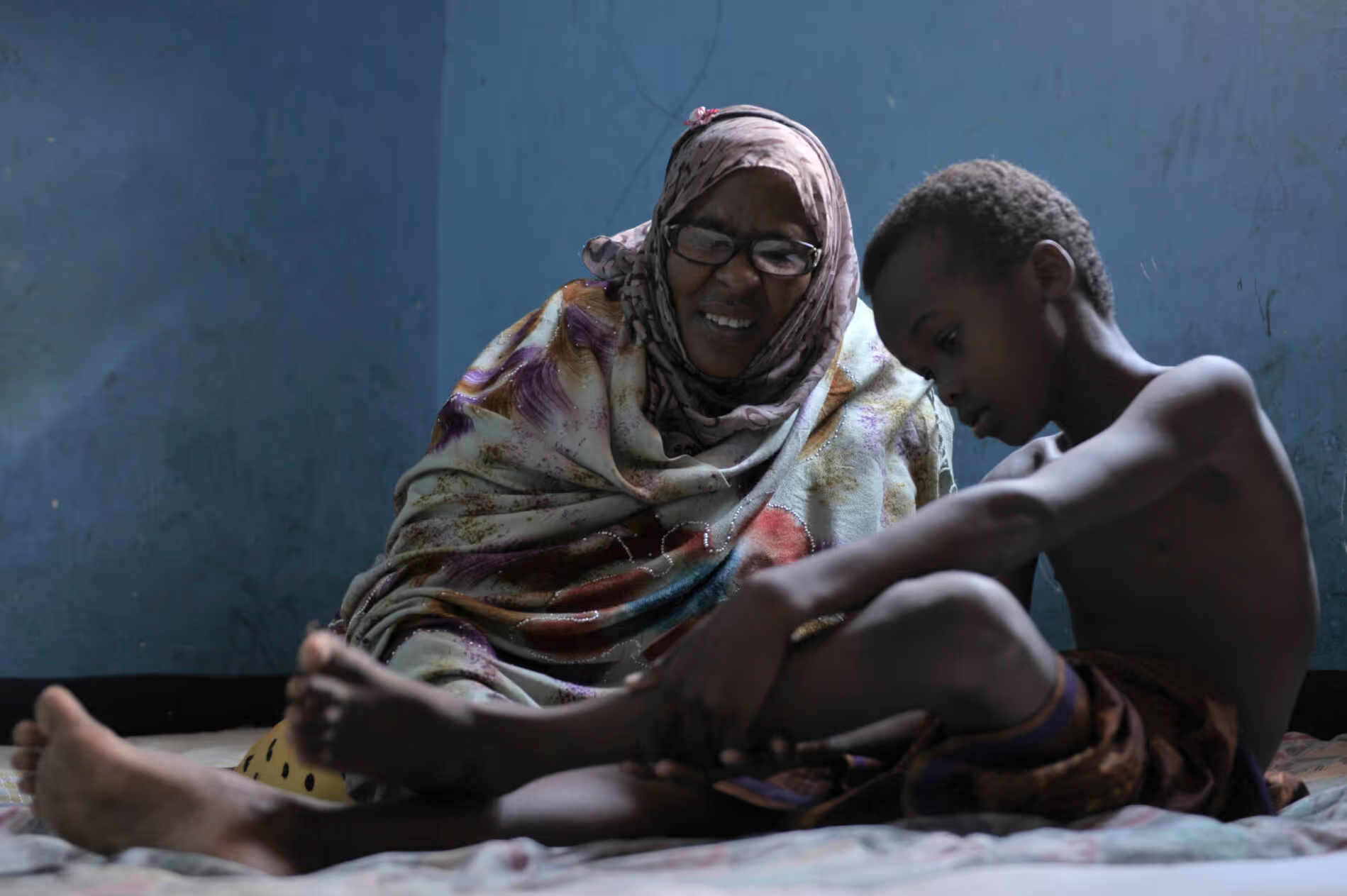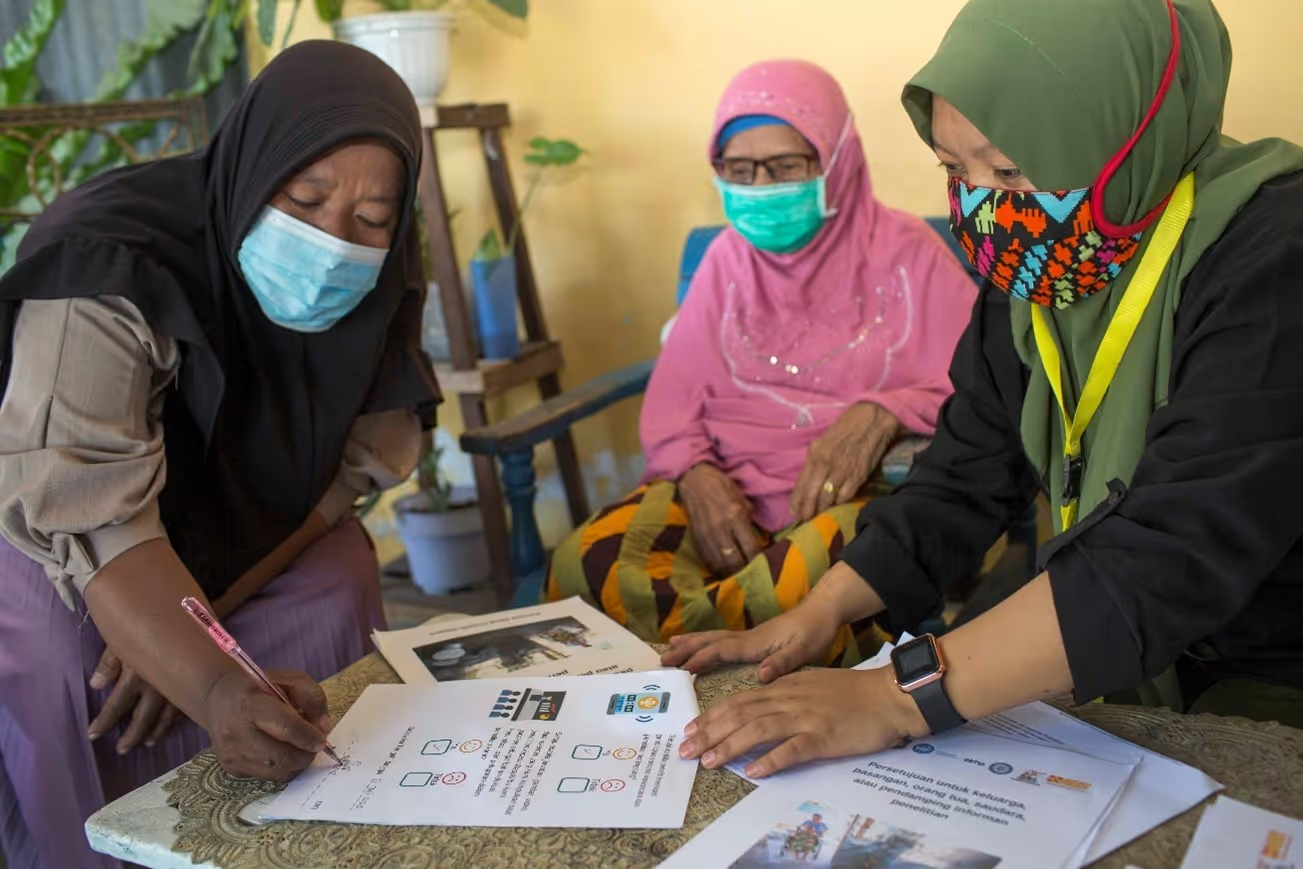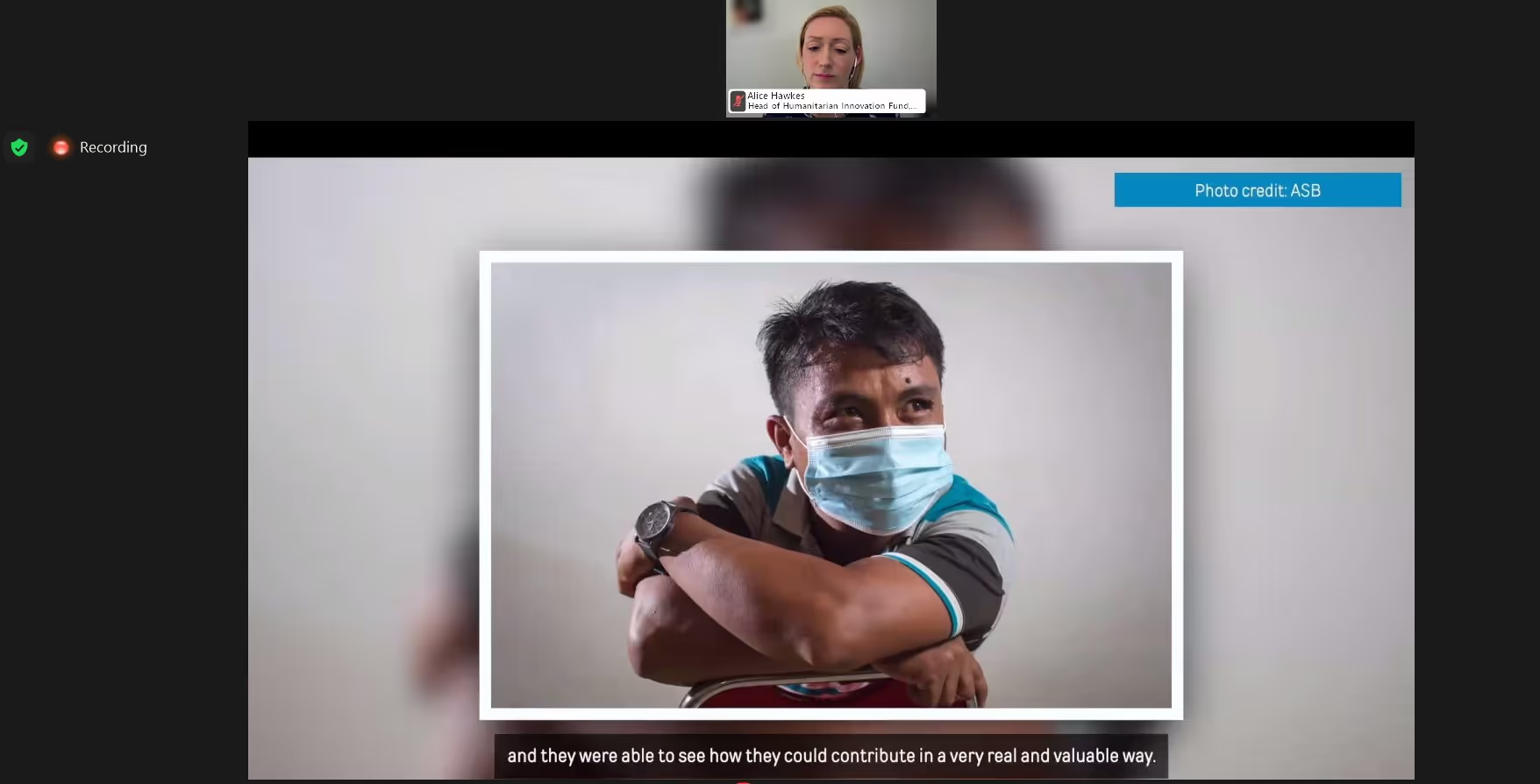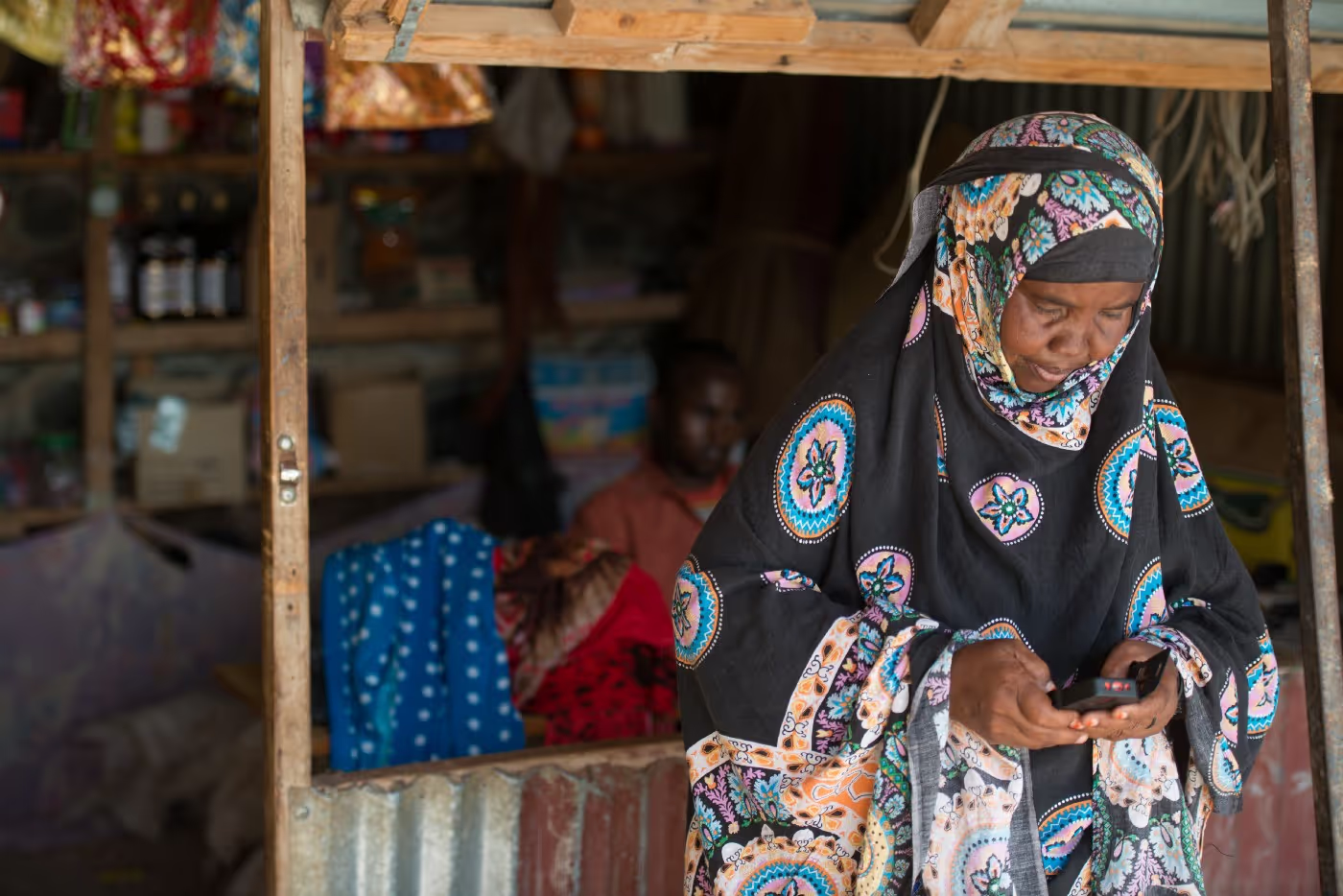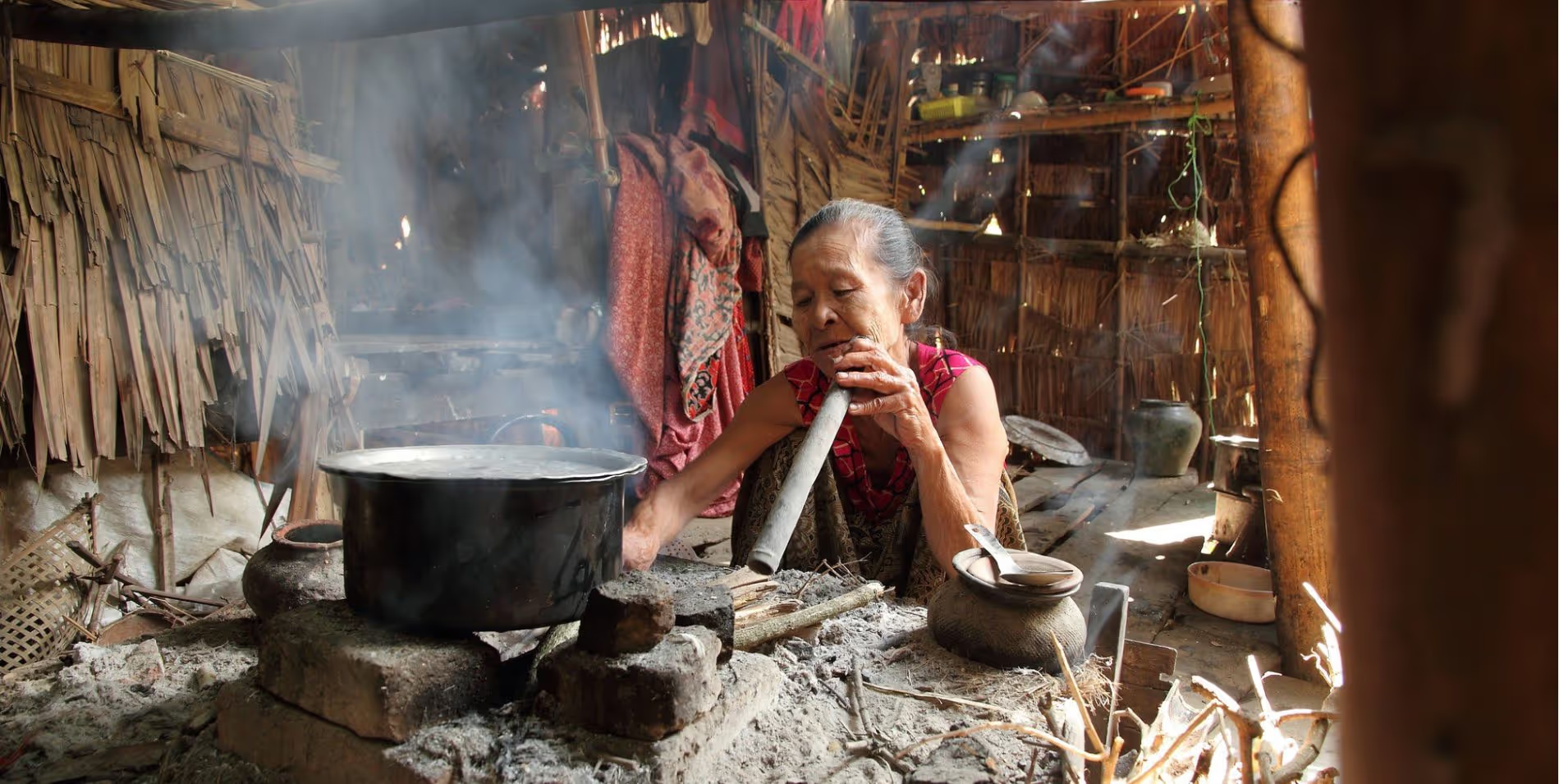Inclusion of people with disabilities and older people
Our newest area of work will explore the barriers to and support opportunities for the inclusion of older people and people with disabilities in humanitarian response.
Why are we focusing on the inclusion of people with disabilities and older people?
The fundamental humanitarian principles of humanity and impartiality require that humanitarian actors include all people affected by crisis in their response activities. Yet we know that some people are systematically excluded. This includes people with disabilities and older people.
Although data on disability is not comprehensive, global estimates suggest 15% of people in a given population will have a disability or disabilities. In humanitarian settings, this proportion can be substantially higher. Indications from data collected using the Washington Group Questions in Syria, for example, show that up to 26% of the population has a disability.
Additionally, the world is experiencing significant ageing. Almost 1 in 10 people are over 60 years old.
It is expected that by 2050, more than 80% of the world’s older people will live in developing countries – compared with 60% today.
What we do
We have driven progress in humanitarian WASH by defining the most pressing problems, developing the right solutions, distilling our findings and driving positive change.
1.
We are collaborating with the right people, particularly through our Technical Working Group, to design innovation challenges that tackle the most pressing problems and respond to real areas of need.
2.
We had led a robust Gap Analysis exercise to help identify the evidence gaps, priorities and opportunities for innovation and research to enable the inclusion of older people and people with disabilities in humanitarian response.
3.
We are taking a flexible, ethical and collaborative approach as a funder. We know that good research and innovation takes time and we will support our projects on the inclusion of people with disabilities and older people to continually assess their work and pivot if needed to get the best results.
4.
We are advocating for and endorsing a rights-based approach to inclusion, that builds on best practice in legal frameworks and guidance, and builds meaningful and mutually beneficial partnerships with Organisation for Persons with Disabilities (OPDs) and Older People’s Associations (OPAs).
What next?
We want to see a humanitarian system that upholds the rights of people with disabilities and older people, and recognises their capacities and views.
We want to see a humanitarian system where inclusion is recognised as the responsibility of all actors, not just specialist agencies.
This means that we must continually consult, learn and iterate in what we do, which is a core principle of innovation. It means actively seeking out consultation with people with disabilities and older people. And it means recognising that Organisations for Persons with Disabilities (OPDs) and Older People’s Associations can be at the forefront of inclusive action during a humanitarian crisis.
Overall, improving our understanding of the barriers to inclusion for people with disabilities and older people in humanitarian response means we can better uphold the principles of humanity and impartiality, and we can improve outcomes for all individuals affected by crises.

Sophie Van Eetvelt
Innovation Manager, Elrha
“There is a lot of progress to be made before we see a fully inclusive humanitarian response. But, increasingly, the rights and capacities of people with disabilities and older people are being recognised by a wide range of humanitarian actors – not just the specialist agencies.
There is a huge demand for innovation to help tackle barriers to inclusion, and lots of organisations doing great work around advocacy and implementation. Innovation takes many forms in this area; from improving assessment tools to better-recognise the perspectives of women with disabilities in Syria, to rapidly deployable accessible latrine slabs in Mozambique and novel community-led programmes to tackle stigma and prejudice around older age and disability.
I am thrilled to be working in this area with Elrha and incredibly excited to see what innovation we support over the coming years. Please get in touch if you’d like to be involved or learn more. ”
Featured Inclusion of people with disabilities and older people resources
Explore our most impactful publications and tools
What we fund in Inclusion of people with disabilities and older people
Explore the groundbreaking projects that Elrha supports across the globe. From health innovations to disaster risk reduction, our funding drives impactful solutions in humanitarian contexts.
News in Inclusion of people with disabilities and older people
Want to find out more about our Innovation Challenges?
Get notified when our innovation challenges open by subscribing to our HIF Newsletter.
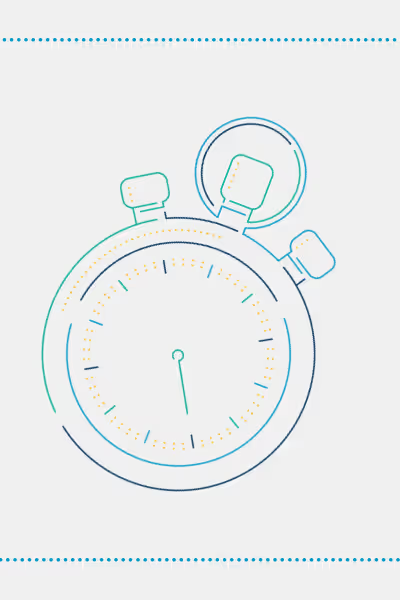
Image credits
- Image courtesy of [Photographer/Artist Name]
- Image courtesy of [Photographer/Artist Name]
